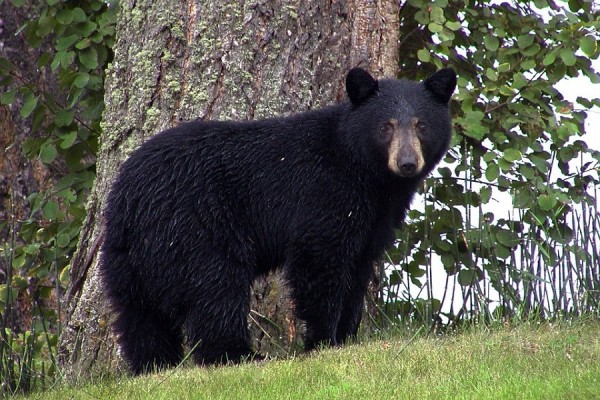By Ana Verayo, | March 11, 2016

The Louisiana black bear is no longer listed as an endangered species.
Good news for both teddy bear fans and animal lovers and conservationists, as the Louisiana black bear will now be removed from the list of endangered species after 20 years of conservation efforts.
According to the United States Department of the Interior, the famous bear in which the "teddy bear" was inspired from is now considered as a conservation success, which means that the bears no longer require protection from the Endangered Species Act, which involves the killing or removal of endangered animals.
Like Us on Facebook
However, environmentalists and biologists will continue to monitor the black bear, where it is expected that the animal will not be hunted down to dwindling numbers.
During the beginning of the 20th century, hunting black bears was a popular activity, as then President Theodore Roosevelt hunted down a bear in Mississippi where he was accompanied by a Confederate cavalryman known as Holt Collier who was also famous for killing 3,000 bears, coining the term, "teddy bear".
Louisiana black bear hunting became more prevalent than ever since then and as the 1980s rolled by, 80 percent of the natural habitat of the bears already disappeared. This big mammal is among of the 16 species of the black bear family, possessing a longer and more narrow skull than other bears. The bears are native to Mississippi and Louisiana and Texas, becoming a state animal.
The Louisiana black bear was listed under the Endangered Species Act in 1992 where this act served an important role in protecting the creatures including the restoration of its habitat. To date, about 465,000 acres of forest have been dedicated for the bears' habitat that led to bear populations increasing from 150 to 750 individuals.
The federal government believes that the black bear can thrive once more, and more importantly, that these bears are no longer in danger of becoming extinct due to an intensive restoration of its habitat and growing numbers of breeding pairs, that suggests a better future for the species.
According to secretary of Interior, Sally Jewell, Roosevelt would have really enjoyed this recovery of the Louisiana black bear. She adds how working together across private and public lands along with many dedicated partners, reveals a strong conservation ethic that Roosevelt stood for when he established the National Wildlife Refuge System as part of this solution in addressing the issues faced with the nation's wildlife.
-
Use of Coronavirus Pandemic Drones Raises Privacy Concerns: Drones Spread Fear, Local Officials Say

-
Coronavirus Hampers The Delivery Of Lockheed Martin F-35 Stealth Fighters For 2020

-
Instagram Speeds Up Plans to Add Account Memorialization Feature Due to COVID-19 Deaths

-
NASA: Perseverance Plans to Bring 'Mars Rock' to Earth in 2031

-
600 Dead And 3,000 In The Hospital as Iranians Believed Drinking High-Concentrations of Alcohol Can Cure The Coronavirus

-
600 Dead And 3,000 In The Hospital as Iranians Believed Drinking High-Concentrations of Alcohol Can Cure The Coronavirus

-
COVID-19: Doctors, Nurses Use Virtual Reality to Learn New Skills in Treating Coronavirus Patients







